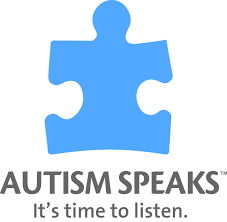How a Treadmill May Benefit Individuals With Autism
We are all well aware of the fact that regular exercise, on a treadmill, in the pool or outside, offers enormous benefits for your heart, your weight, your immune system and your body as a whole.
But recent studies show that it can also provide very specific benefits for individuals with autism spectrum disorder. As such a regular exercise routine just might be the perfect complement to traditional behavioral therapy.
What does the research show?
Perhaps the most easily understood of the benefits of regular exercise is weight management. The latest research shows that in the United States 17% of children aged 2-19 are obese and 32% are either overweight or obese.
Those figures are even higher for those children with autism, due to the fact that they tend to engage in less activity, eat selectively and may gain weight as a side effect of any medications they are taking.
Incorporating a regular exercise routine can obviously help with weight management as well as promote cardiovascular and general health in all children.
But what about specific benefits of physical exercise for autistic children? That's where it gets very interesting. There was a study conducted not too long ago that had severely autistic children walk on a treadmill for a period of 9 months to gauge the effect that it had on their weight. The results were very impressive, and had further reaching positive effects beyond weight loss.
Along with decreased body mass, which was expected, researchers were able to raise the elevation, time and speed of the treadmill, indicating an improvement in fitness level as the study went on.
Most interestingly, however, are the ancillary results of this regular physical activity, whether it be on the treadmill, in the pool or out on the track.
Specific benefits for autism
Helping any child or teen attain a healthy weight and fitness level is an achievement in itself. But the benefits of regular exercise for those with autism extend even further.
Regular exercise may be able to...
1) Reduce the frequency of negative behaviors - Many of the typical behaviors, such as spinning, rocking, tapping, staring and others tend to diminish with regular exercise. It can also diminish aggressive behavior. This can have enormous benefits as it can help those with autism focus more and interact better socially.
2) Increasing Motor Function - Although communication, repetitive behaviors and social issues are considered the hallmarks of autism, motor function is also an issue. Regular exercise has been shown to help improve motor function, improving learning ability, coordination and balance.
3) Improved Socialization - As fitness levels and abilities improve, so does confidence and sense of well-being, which in turn helps individuals with autism socially. They also interact with coaches, trainers, teammates and other children, which further improves their social skills and comfort levels.
What about traditional behavorial therapy?
Although these studies are very promising, physical activity should not serve as a replacement for traditional behavioral therapies that are used to help children and teens with autism.
Rather, a regular exercise routine may be a very helpful complement to therapy, and is definitely worth exploring, if only for its proven weight management, heart and general health implications.
Still, there appear to be some very real benefits to be gained from regular, structured physical activity that can't be ignored.
Some Great Resources For You
To learn more about how exercise can help with autism spectrum disorder, here are some further resources for you.
Autism Web - A very helpful resource run by parents with tons of great information as well as a discussion forum.
Autism Speaks - A great organization that researches causes and treatments of autism as well as raises awareness around the world. Some great articles on exercise, behavioral therapy and other treatment options.
Autism Resources - One of the most comprehensive resources available with helpful links, FAQs, advice, books and more.
Autism Research Institute - A non-profit organization that supports research, provides guidance and resources for those with autism and their families.
Exercise Gives Children Jump On Social Skills - An article from Spectrum News about the benefits of regular exercise for those with autism.
Top 8 Exercises For Autism Fitness - A nice little guide with 8 different fun exercises that are ideal for autistic children and teens.
The Challenges of Physical Fitness - From the Interactive Autism Network on some of the obstacles faced.
Study: Exercise May Cut Behavior Issues In Half - Disability Scoop article highlighting the benefits of aerobic exercise.
 Autism Awareness
Autism AwarenessAutism Resources
An informational website run by parents. A great resource.
The National Institute of Mental Health's info page.
The latest news and research on various topics

